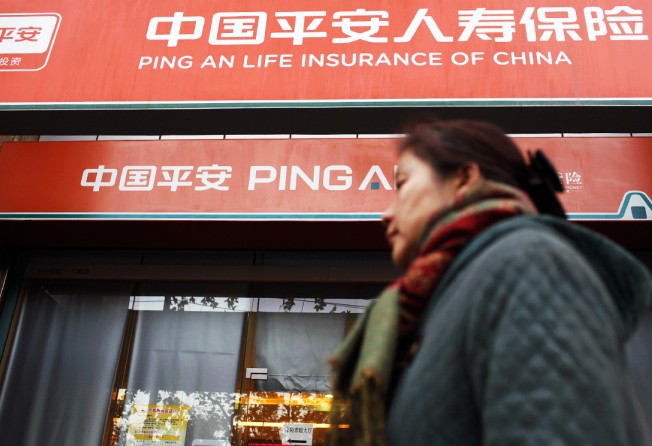Alibaba, Tencent investing in Ping An's HK$37b private placement
“I am not too surprised about the investment by Alibaba and Tencent. Bringing in the two companies will help the insurer to expand its business in internet finance”

A consortium of institutional investors led by mainland’s internet giants – Jack Ma Yun and Pony Ma Huateng – has flocked into Ping An Insurance’s HK$37 billion private placement, cementing the insurer’s position in China’s rapidly growing internet finance market that might overthrow traditional banks.
The two internet executives who lead Alibaba and Tencent, respectively, had invested in the placement of Ping An, two people familiar with the matter told the South China Morning Post yesterday.
The billionaire pair are believed to be the biggest investors in the Ping An share offering.
A Shenzhen-based spokeswoman at Ping An declined to confirm the new financial backers, but said the company welcomes new investors who participated in the placement.
The mainland’s second-largest insurer on Sunday announced selling 594 million H shares at HK$62 per share, 4.7 per cent lower than Friday’s closing of HK$65.05.
The deal marked the second-largest share placement this year after Citic Pacific raised nearly US$7 billion to fuel its purchase of assets from its state-owned parent, according to Dealogic.
Hong Kong-traded shares in Ping An closed 0.31 per cent lower at HK$64.85 after reaching an intraday high of HK$67.55. The benchmark Hang Seng Index fell 2.64 per cent yesterday.
“The fundraising is positive to Ping An, and unlikely to put too much pressure on share prices as the pricing of new shares is within market expectations,” said Chen Xingyu, an analyst with Phillip Securities.
The placement allowed the introduction of new strategic investors who could contribute to the insurer’s online distribution channel, he said.
“I am not too surprised about the investment by Alibaba and Tencent. Bringing in the two companies will help the insurer to expand its business in internet finance,” Chen said.
Before this, Ping An, Alibaba and Tencent last November set up a new venture, Zhong An Online Property Insurance, the mainland’s first online insurance company, to tap rapidly growing online sales.
Chinese insurers are also selling policies through online platforms such as Alibaba’s marketplace Taobao.
According to the Insurance Association of China, online insurance sales amounted to 62.2 billion yuan (HK$78.99 billion) in the first three quarters of this year, 195 per cent more than the full-year figure of last year.
Sally Yim, a senior credit officer at ratings agency Moody’s Investors Service, said large mainland insurers like Ping An were in need of a capital boost as they prepare for stricter capital requirements and faster growth in premium business.
“The placement will also help the insurer boost the capital condition of its banking unit [Ping An Bank] whose capital ratio is weaker when compared with its peers,” she said.
Yim also said that a closer tie-up with internet companies would allow Ping An to seize opportunities in internet finance, benefiting its banking business.
Currently, contribution from online sales for mainland insurers was not that significant, but the cost-effective distribution channel was a good alternative in selling policies, particularly in property and casualty insurance products, she said.